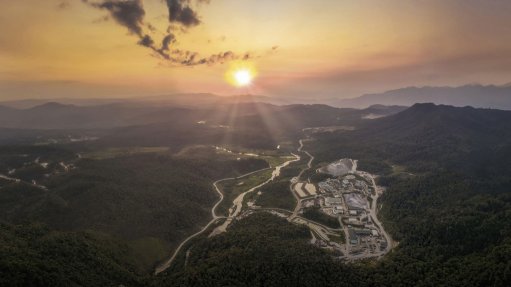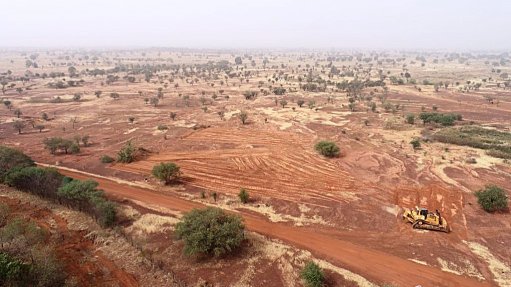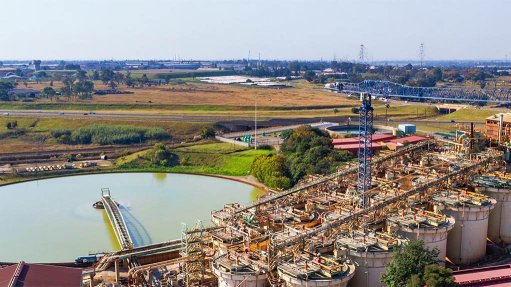Report outlines six macro trends shaping African mining operational excellence
Africa’s mining sector is entering a new period of disruption where risk has become a defining force shaping strategy, investment and operational performance, says consultancy dss+ in a newly released mining report.
The continent’s critical mineral resources are central to global industrial, energy and technology systems, but shifting trade regimes, resource nationalism and increased scrutiny from governments, investors and communities are creating a more complex operating environment for mining companies.
These external pressures, coupled with internal ones such as rising input costs, degrading ore grades at existing sites and ageing infrastructure, are redefining what it takes to remain competitive and credible.
While the African mining industry has always operated under pressure shaped by commodity cycles, government expectations and social demands, the difference in 2025 is the convergence of these forces and the growing speed and complexity with which they affect performance on the ground.
The dss+ 'African Mining Trends' report outlines six macro forces that are accelerating disruption across the industry, including geopolitical realignment, strategic supply chains and digital integration.
“Succeeding in this environment will require stronger execution, sharper adaptability and more accountable leadership at every level of the organisation,” dss+ mining and metals director Jaco Pieterse states.
He adds that risk is becoming a central lens through which performance is judged and that technical strength alone is no longer enough.
“The leaders who succeed in this environment are those who can execute under pressure, adapt rapidly and embed resilience in the fabric of their organisations,” Pieterse explains.
The first macro trend identified in the report is geopolitical realignment and operational agility. As nations compete for mineral access and local asset control, companies must embed geopolitical awareness into enterprise risk and capital planning, Pieterse suggests.
He says governments in the US, EU and China are taking assertive steps to secure access to critical minerals through policy reforms, strategic partnerships and investment protection measures, to which many African governments have responded by asserting more control over resources and demanding greater alignment with national development goals.
Navigating shifting trade flows and new geopolitical dynamics effectively will require geopolitical awareness, scenario-based planning and readiness to engage with a broad range of public and private stakeholders, Pieterse states.
The next macro trend that has always been present in the industry, but now faces increased scrutiny, is safety. Despite past progress, serious incidents and fatalities persist in the global mining industry. To this end, leadership visibility, contractor integration and culture alignment are essential to improve outcomes.
Pieterse elaborates that ICMM member companies reported 36 fatalities in 2023, up from 33 in 2022. “It is not enough to rely on legacy systems or past improvements. To improve from here, safety must evolve from compliance to culture, and from procedures to shared responsibility,” he suggests.
A key area for improvement is that of contractor risk exposure. Many contractors perform high-risk tasks but remain poorly integrated into core safety governance and culture. Pieterse suggests companies can also ensure that new safety tools such as wearables and digital permits are trusted and understood by employees.
Moreover, dss+ says workforce shortages, disengagement and culture gaps are increasingly undermining performance and that the future depends on inclusive, adaptive and empowered teams of people.
Pieterse confirms that leadership quality directly impacts workforce retention and engagement, adding that perceptions of poor leadership and working conditions can significantly affect productivity,
“Companies need to upskill their workforce, not only technically, but also behaviourally. Operational excellence is built on trust, consistency and accountability, starting with leaders who create psychologically safe environments for all employees and contractors.”
Additionally, Pieterse stresses the importance of enabling innovation by introducing new tools and integration. He warns that digital innovation hinges on leadership alignment, frontline capability and clear operational governance.
Too often, digital transformation breaks down after the pilot stage. Pieterse says tools are implemented but behaviours do not change and systems remain fragmented. “Without a culture of adaptability, even the best innovations can increase exposure to operational failure.”
Another disruptive macro trend is that of changing supply chains and the need to diversify suppliers. To mitigate against climate shocks and export restrictions, companies must build redundancy, local partnerships and cross-functional resilience into their supply models, Pieterse recommends.
“Disruption is no longer episodic, it is systemic. For mining companies, these disruptions are affecting every stage of operations from movement of mined materials to market to the timely arrival of equipment.
“The just-in-time model that prioritised cost efficiency is no longer fit for purpose in a world marked by geopolitical tensions, climate shocks and infrastructure fragility. Mining leaders must now design supply chains for adaptability and resilience, to ensure operational continuity,” Pieterse says.
Lastly, dss+ determines operationalising environmental, social and governance (ESG) principles as key to ensure sustainability into the future. “Investors, regulators and communities now expect ESG to be embedded into core business systems and not for it to be treated as merely a reporting obligation,” Pieterse adds.
He motivates that when ESG is integrated into how companies plan, lead and operate, it becomes a lever for cost control, project stability, supply chain resilience and long-term asset value. “The pay-off is tangible: smoother capital access, faster permitting, lower risk exposure and greater workforce and stakeholder trust.”
The consultancy believes the companies that will thrive in this new are not the ones with the most ambitious strategies – rather, it will be the ones that can integrate and activate strategies effectively.
Pieterse concludes the consultancy’s work with mining leaders across Africa shows that real impact comes when strategy and execution are tightly linked – “when leaders are engaged, systems are aligned and risk is owned at every level”.
Article Enquiry
Email Article
Save Article
Feedback
To advertise email advertising@creamermedia.co.za or click here
Announcements
What's On
Subscribe to improve your user experience...
Option 1 (equivalent of R125 a month):
Receive a weekly copy of Creamer Media's Engineering News & Mining Weekly magazine
(print copy for those in South Africa and e-magazine for those outside of South Africa)
Receive daily email newsletters
Access to full search results
Access archive of magazine back copies
Access to Projects in Progress
Access to ONE Research Report of your choice in PDF format
Option 2 (equivalent of R375 a month):
All benefits from Option 1
PLUS
Access to Creamer Media's Research Channel Africa for ALL Research Reports, in PDF format, on various industrial and mining sectors
including Electricity; Water; Energy Transition; Hydrogen; Roads, Rail and Ports; Coal; Gold; Platinum; Battery Metals; etc.
Already a subscriber?
Forgotten your password?
Receive weekly copy of Creamer Media's Engineering News & Mining Weekly magazine (print copy for those in South Africa and e-magazine for those outside of South Africa)
➕
Recieve daily email newsletters
➕
Access to full search results
➕
Access archive of magazine back copies
➕
Access to Projects in Progress
➕
Access to ONE Research Report of your choice in PDF format
RESEARCH CHANNEL AFRICA
R4500 (equivalent of R375 a month)
SUBSCRIBEAll benefits from Option 1
➕
Access to Creamer Media's Research Channel Africa for ALL Research Reports on various industrial and mining sectors, in PDF format, including on:
Electricity
➕
Water
➕
Energy Transition
➕
Hydrogen
➕
Roads, Rail and Ports
➕
Coal
➕
Gold
➕
Platinum
➕
Battery Metals
➕
etc.
Receive all benefits from Option 1 or Option 2 delivered to numerous people at your company
➕
Multiple User names and Passwords for simultaneous log-ins
➕
Intranet integration access to all in your organisation





















